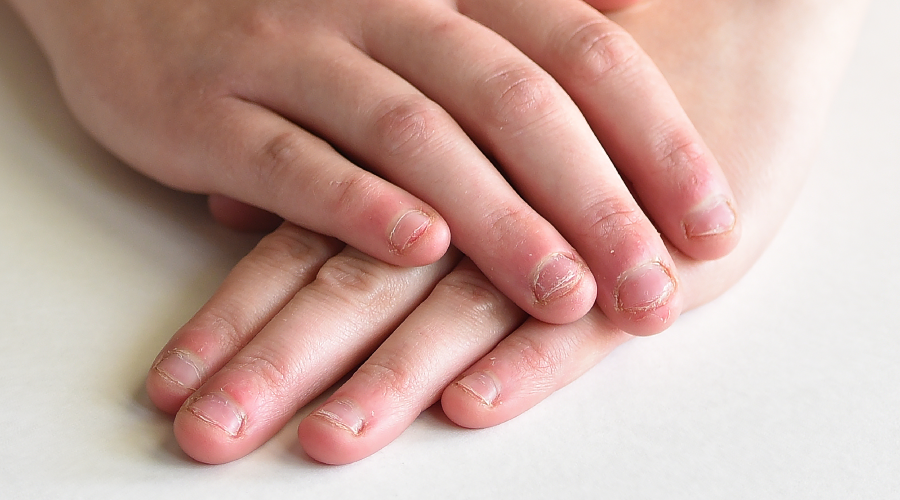Nail biting, known as onychophagia, can occur in both children and adults. Although it seems harmless, the long-term habit of nail biting can have several potential health risks, including:
Infection: Biting nails can introduce bacteria and other germs into the mouth, increasing the risk of infections in the nails, fingers, and even the mouth and throat.
Loss of nails: Frequent nail biting can damage and weaken the nails, making them prone to breakage. Also there is a high risk of fungal infection. It also damages the edges (cuticles) around the nail, which can cause severe pain in the skin of the root of the nail.
Dental problems: Nail biting can also lead to dental problems over time such as damaged teeth, crooked teeth and possible jaw problems. This is especially true when the habit is severe and long-term.
Risk of disease: Putting your fingers in your mouth too often can expose you to more germs, which can increase your risk of colds, flu and other illnesses, as well as gastrointestinal infections.
Skin problems: Nail biting can cause nail skin problems, such as redness, swelling and inflammation. This can lead to infections such as dermatitis.
Emotional and psychological effects: Nail biting is often associated with stress, anxiety or boredom. It can be a way to deal with such feelings. It can also lead to mental health problems if the underlying causes are not addressed.
(function(d, s, id){
var js, fjs = d.getElementsByTagName(s)[0];
if (d.getElementById(id)) {return;}
js = d.createElement(s); js.id = id;
js.src = “//connect.facebook.net/en_US/sdk.js#xfbml=1&version=v2.3&appId=770767426360150”;
fjs.parentNode.insertBefore(js, fjs);
}(document, ‘script’, ‘facebook-jssdk’));
(function(d, s, id) {
var js, fjs = d.getElementsByTagName(s)[0];
if (d.getElementById(id)) return;
js = d.createElement(s); js.id = id;
js.src = “//connect.facebook.net/en_GB/sdk.js#xfbml=1&version=v2.7”;
fjs.parentNode.insertBefore(js, fjs);
}(document, ‘script’, ‘facebook-jssdk’));



